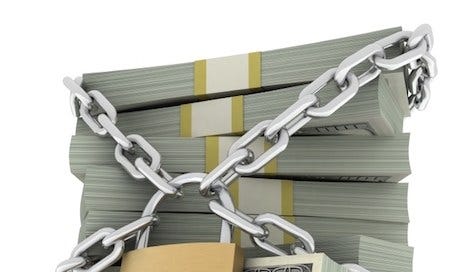Illiquidity in Real Estate: The Sacrifice You Should Be Ready For
Plus How to Combat It Effectively
Happy Thursday, fellow Hybrids!
In today’s newsletter, I will share what I consider to be the biggest downside of real estate investing, along with my recommendation on how to deal with it.
(Today’s issue takes ~3 minutes to read)
I saw a great question floating around on Twitter a while back from Tyler (@JumpInRE):
"Question for those with $1,000,000 net worth or more...What was the biggest sacrifice you made in building your wealth?"
Here were some of the answers people gave for their “biggest sacrifice”:
"Relationships with friends & family" (yikes!)
"Living below my means"
"Expensive vacations & holidays"
All valid answers.
But as a real estate investor, you'll face another dilemma when building wealth…
Real estate investments are inherently illiquid!
What does it mean to be illiquid?
"Illiquidity" refers to the challenge of rapidly converting an asset into cash.
For example, after a quick glance at my portfolio, I confirmed what I already suspected. 90% of my net worth at the time of this writing is in home equity.
This imbalance could be a very bad thing but it doesn’t have to be.
Here are several ways in which illiquidity impacts you as a real estate investor:
Accessing the capital in your properties can be time-consuming and may involve additional costs, such as agent fees and closing costs.
Illiquidity can impact your ability to respond to emergencies.
Lack of access to cash can cause you to miss other investment opportunities in the future.
But don’t fear, there are several strategies that can help you avoid these outcomes.
4 Ways To Offset Liquidity Risk
There’s no way to avoid liquidity risk altogether, but there are four primary ways to defend yourself.
#1: Diversification & Cash Reserves
Diversify your investment portfolio with more liquid assets:
Stocks
Bonds
Cash reserves - recommend 3 months of fixed monthly expenses per property
Health Savings Account (HSA )- a tax-free way to pay medical expenses - do NOT use your HSA for anything other than medical expenses or you’ll face a tax penalty
Cash is always the safest place to hold reserves. High-interest savings accounts are paying an average of ~4% APY at the time of this writing.
Take a look at your portfolio balance by building a personal balance sheet.
Related Reading: 4-Step Process to Build a Personal Balance Sheet in 15 Minutes or Less
#2: Strategic Financing Options
To overcome the challenge of illiquidity, savvy investors utilize various financing options:
Home equity lines of credit (HELOCs)
Cash-out refinancing
401k loan
Low-interest credit card
None of these are ideal, but they can provide access to capital without the need to sell a property at a steep discount.
This helps you maintain your investments while addressing financial needs or opportunities.
Related Reading: Best Ways To Tap Your Home Equity (Forbes)
#3: Understand Your Monthly Cash Flow Needs
Emergencies aren’t the only time you’ll need cash.
Perform proper cash flow analysis on every property you buy to make sure you account for ALL monthly expenses:
Maintenance & Repairs
Property Management
CapEx
Insurance
Taxes
Utilities
Lawn Care
HOA fees
This applies to your primary home too, not just your rentals. Make sure your cash coming in is greater than your cash going out.
Remember, you can be a multi-millionaire on paper, but the equity in your home(s) won't pay your bills.
Related Reading: RULE #1: NEVER Invest In a Property With Negative Cash Flow
#4: Take a Long-Term Approach to Wealth Building
Embrace the idea that real estate investing is a long-term play, and focus on building a solid foundation that will support your financial goals over time.
Don’t try to squeeze a high return from every penny in your bank account. Doing so will lead to unnecessary risk-taking.
If having 3-months of cash reserve prevents you from making a desperate decision to sell at an inopportune time, your ROI on that cash will be enormous.
By carefully planning your investments and maintaining a long-term perspective, you can minimize the impact of illiquidity on your wealth-building journey.
Related Reading: 18 Wealth Lessons from “The Psychology of Money” by Morgan Housel
Final Thoughts
Illiquidity is part of the price of admission when investing in real estate, and that’s fine!
Be aware of this upfront, keep your eyes open, and deploy the strategies listed above to stay afloat while you watch your wealth build in the background.
It’s quite a magical thing.
See you next week.
-Aaron






